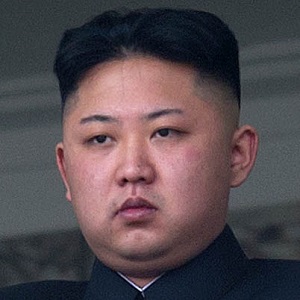Một ủy ban điều tra của Liên Hiệp Quốc trong báo cáo công bố hôm nay 17/02/2014 đã đe dọa đưa hàng trăm lãnh đạo Bắc Triều Tiên ra trước Tòa án Hình sự Quốc tế (CPI) kể cả Kim Jong Un, vì đã phạm hàng loạt tội ác chống nhân loại.
Báo cáo khẳng định: «Ủy ban điều tra đã ghi nhận được các vụ vi phạm đương nhiên, trải rộng và thô bạo về nhân quyền được tiến hành bởi nước Cộng hòa Dân chủ Nhân dân Triều Tiên trong nhiều trường hợp, những vi phạm này là tội ác chống nhân loại».
Trước khi bản báo cáo hết sức chi tiết dày đến 372 trang của ủy ban điều tra do Hội đồng Nhân quyền Liên Hiệp Quốc tại Genève thành lập vào tháng 3/2013 được công bố, Bình Nhưỡng đã «kiên quyết bác bỏ toàn bộ » văn bản được gọi là «sản phẩm chính trị hóa về nhân quyền do Liên hiệp châu Âu và Nhật Bản tiến hành cùng với chính sách thù địch của Hoa Kỳ».
Trong lá thư gởi cho Kim Jong Un, ủy ban điều tra cảnh báo rằng tất cả các quan chức bị nhìn nhận là đã phạm tội « có thể kể cả ông », sẽ phải trả lời về các hành động của mình trước tòa án quốc tế. Đây là cảnh báo công khai chưa từng có từ trước đến nay đối với một lãnh đạo đương nhiệm.
Tuy nhiên khó thể có việc Hội đồng Bảo an ra lệnh đưa các quan chức Bắc Triều Tiên ra trước Tòa án Hình sự Quốc tế, vì chắc chắn đồng minh Trung Quốc của Bình Nhưỡng sẽ phủ quyết.
Bên cạnh việc tra tấn trong quá trình thẩm vấn đã trở thành phổ biến, và nạn đói mà các quan chức Bình Nhưỡng «cố tình» để xảy ra, các nhà điều tra do thẩm phán Úc Michael Kirby lãnh đạo, đã cảnh báo Bắc Kinh là Trung Quốc có thể bị coi là «đồng phạm tội ác chống nhân loại » vì đã gởi trả những người Bắc Triều Tiên đào thoát trở về nước.
Theo kết luận của cuộc điều tra được tiến hành trong một năm qua với những người đang tị nạn tại Hàn Quốc, Nhật Bản, Anh và Hoa Kỳ, việc cưỡng bức người tị nạn phải quay về đã khiến họ có nhiều nguy cơ bị tra tấn, bị hành quyết tùy tiện.
Ủy ban điều tra ước tính có «hàng trăm ngàn tù nhân chính trị đã bị chết trong các trại cải tạo trong 50 năm gần đây», «lần lượt qua đời vì nạn đói cố tình gây ra, cưỡng bức lao động, hành hình, tra tấn, hiếp dâm, cưỡng bức phá thai». Ba luật gia quốc tế là thành viên của ủy ban nhận định số trại cải tạo và tù nhân đã giảm xuống do tử vong và một số được trả tự do, nhưng «hiện vẫn còn 80.000 đến 120.000 tù nhân chính trị đang bị giam giữ trong bốn trại cải tạo tù chính trị lớn».
Cho rằng không thể «chờ đợi đến mười năm», một nhà ngoại giao nêu ra ý tưởng lập một tòa án đặc biệt, trong lúc các điều tra viên so sánh các vụ vi phạm nhân quyền tại Bắc Triều Tiên với các tội ác Đức quốc xã trong Đệ nhị Thế chiến.
Ông Michael Kirby nhận xét: «Đối với hàng trăm vụ, sự giống nhau là rất ấn tượng. Sự trầm trọng, tầm cỡ và tính chất của các vụ vi phạm chứng tỏ đây là một đất nước chưa hề có nơi nào tương đồng trong thế giới hiện nay», và theo ông, hàng trăm viên chức Bắc Triều Tiên có thể bị nhìn nhận là đã phạm những tội ác nặng nề nhất.
Trong lá thư gởi cho Kim Jong Un có kèm theo báo cáo, chủ tịch ủy ban điều tra nhấn mạnh rằng các vụ lạm dụng thường từ những người có trách nhiệm của các tổ chức được lãnh tụ Bắc Triều Tiên trực tiếp kiểm soát như quân đội, tư pháp hay đảng Lao động Triều Tiên.
Các tổ chức bảo vệ nhân quyền lên tiếng hoan nghênh bản báo cáo trong đó cũng đã nêu ra sự hiện diện của các « quỹ đen » ngoài ngân sách chính thức, việc buôn lậu rượu và ngà voi do các đại sứ quán Bắc Triều Tiên tiến hành.
Bà Julie de Rivero, thành viên Human Rights Watch lấy làm tiếc là « Bắc Triều Tiên chỉ được Hội đồng Bảo an xem xét dưới góc độ phổ biến vũ khí hạt nhân ». Bản báo cáo đã « đưa ra ánh sáng vấn đề nhân quyền tại Bắc Triều Tiên mà trước đây chưa được nêu. Chúng ta có thể hy vọng báo cáo sẽ thúc đẩy Liên Hiệp Quốc và cộng đồng quốc tế không chỉ quan tâm các đe dọa về mặt an ninh».
Thụy My
Bản tin Breaking News của CNN
“Abundant evidence” of crimes against humanity in North Korea, panel says
By Michael Pearson, Jason Hanna and Madison Park, CNN
Tue February 18, 2014
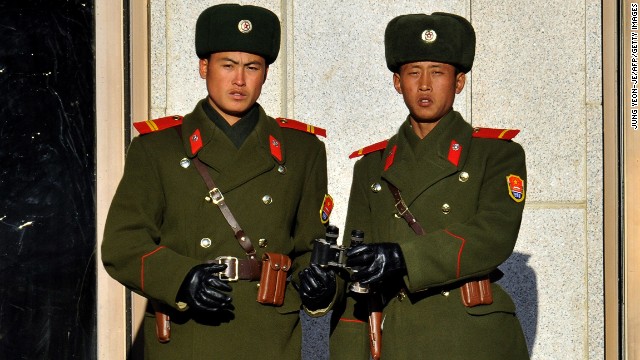
North Korea’s Human Rights Treatment
(CNN) — A stunning catalog of torture and the widespread abuse of even the weakest of North Koreans reveal a portrait of a brutal state “that does not have any parallel in the contemporary world,” a United Nations panel reported Monday.
North Korean leaders employ murder, torture, slavery, sexual violence, mass starvation and other abuses as tools to prop up the state and terrorize “the population into submission,” the United Nations Commission of Inquiry on Human Rights (COI) in North Korea said in its report
The commission said it would refer its findings to the International Criminal Court (ICC) for possible prosecution. It also sent a letter warning North Korean leader Kim Jong Un that he could face prosecution for crimes against humanity, and said other options include establishing of an ad hoc tribunal by the United Nations.
Even before the report’s release, China, a permanent member of the U.N. Security Council and staunch ally of North Korea, has said it would not to allow human rights charges to proceed to the ICC.
The almost yearlong investigation traced the abuses directly to the highest levels of the North Korean government while simultaneously blaming world leaders for sitting on their hands amid untold agony.
The U.N. panel released its 400-page report after hearing from more than 320 witnesses in public hearings and private interviews.
North Korea is a state, it concluded, “that does not content itself with ensuring the authoritarian rule of a small group of people, but seeks to dominate every aspect of its citizens’ lives and terrorizes them from within.”
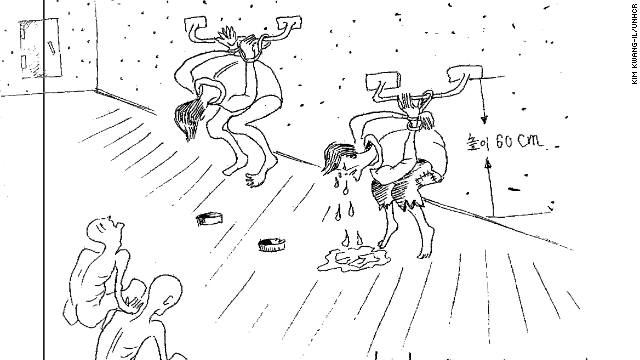
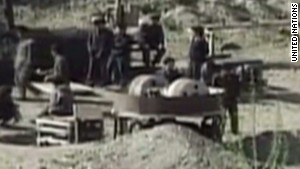
North Korea: UN report a political plot
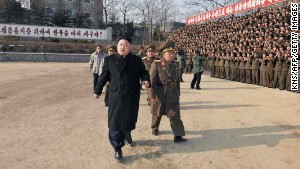
Amnesty: Victims need to come forward
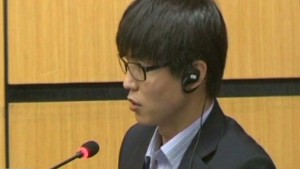
U.N. hears story of North Korean torture
“The suffering and tears of the people of North Korea demand action,” commission Chairman Michael Kirby told reporters.
The government of North Korea — also known as the Democratic People’s Republic of Korea, or DPRK — rejected the report as a ginned-up effort to undermine its government.
“It is nothing more than an instrument of political plot aimed at sabotaging the socialist system by defaming the dignified images of the DPRK and creating an atmosphere of international pressure under the pretext of ‘human rights protection,'” the government said in a prepared statement.
North Korea did not respond to requests for access to the country and information about its human rights practices, according to the commission.
China had previously stated it would not approve human rights charges on North Korea to go to the International Criminal Court. On Monday, prior to the report’s release, a Chinese Ministry of Foreign Affairs spokeswoman Hua Chunying said, “Submitting human rights issues to the International Court of Justice won’t help improve a country’s human rights condition.”
She maintained that China advocates “constructive dialogue and cooperation to resolve differences on human rights issues.”
The commission of inquiry sought access to parts of China that border North Korea during the 11-month investigation, but was denied.
The commission also requested a visit to Beijing to meet relevant officials and experts on North Korea issues — a request that was also denied by China with the reasoning that based on its “position on country-specific mandates, especially on the Korean peninsula, it would not be possible to extend an invitation to the Commission,” according to the report.
In the report, the commission recommended that China abstain from forcibly repatriating North Koreans who’ve escaped their country, due to the punishment they face once they are returned.
Meanwhile, the U.S. State Department expressed support for the UN report and urged North Korea “to take concrete steps — as recommended by the [Commission of Inquiry] — to improve the human rights situation for the North Korean people.”
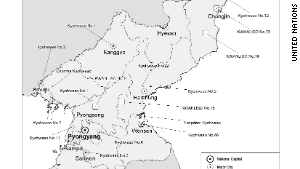
U.N. report details abuse in North Korea
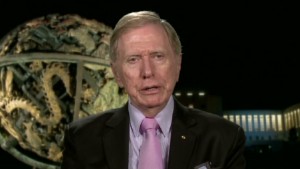
U.N. chair: Witness evidence powerful
“We look forward to thoroughly reviewing the report and discussing its recommendations with our partners, who share our deep concern about the human rights situation in North Korea.”
The group Human Rights Watch released a statement saying that “the devastating findings of this inquiry should not be ignored.”
“Since the crimes were perpetrated by state actors, only an international tribunal can properly carry out criminal investigations aimed at holding perpetrators accountable,” said Kenneth Roth, executive director at Human Rights Watch.
During the compilation of the report one witness, a survivor of a North Korean prison camp, told the commission of seeing a guard beat a nearly starving woman who had recently given birth, then force the woman to drown her baby.
Others told of being imprisoned for watching soap operas, trying to find food for their families, traveling without permission or having family members considered suspect by the government.
“Because we saw so many people die, we became so used to it,” one prison camp survivor told the commission. “I’m sorry to say that we became so used to it that we didn’t feel anything.”
Kirby that he hoped the report would galvanize the world to act.
“We cannot say we didn’t know,” he said. “We now do know.”
CNN’s Steven Jiang and Paula Hancocks contributed to this report.
http://www.cnn.com/2014/02/17/


